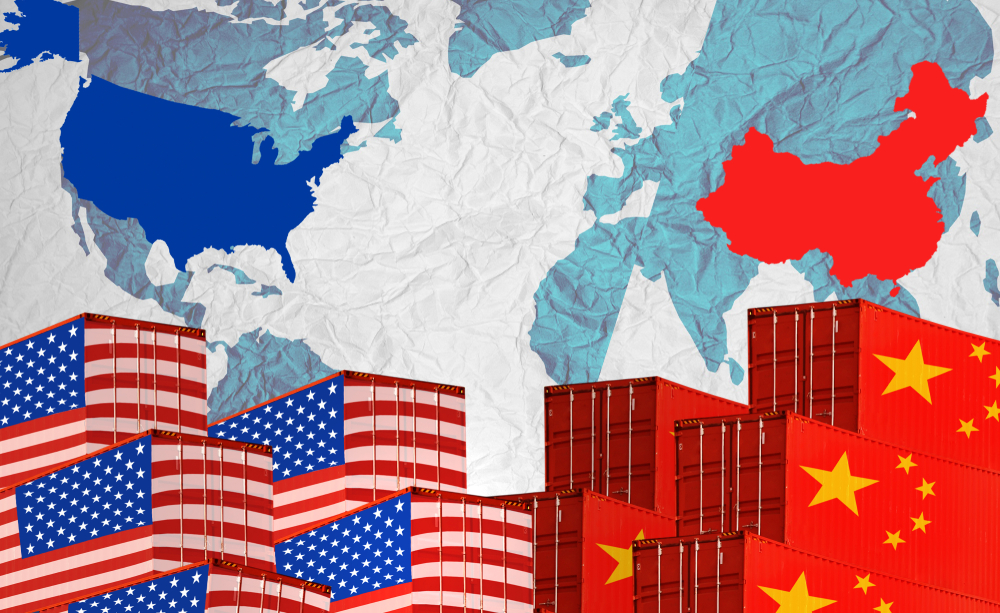Huawei and China launch fresh offensives amid US trade war
China hasn't exhausted its arsenal in this war just yet


Sign up today and you will receive a free copy of our Future Focus 2025 report - the leading guidance on AI, cybersecurity and other IT challenges as per 700+ senior executives
You are now subscribed
Your newsletter sign-up was successful
Huawei has filed a lawsuit against the US government in the company's latest attempt to mitigate the effects of a ban on the use of its telecoms equipment by federal agencies and their contractors.
It relates to the 2019 National Defense Authorization Act (NDAA), a bill passed in August 2018 which excluded federal departments from using the Chinese company's tech based on the alleged security issues associated with its equipment and the possible collusion with the Chinese government.
The lawsuit is a motion for summary judgement, a request submitted to the court asking it to side with Huawei on a point of law which suggests Huawei believes the NDAA, or at least part of it, is unlawful.
US relaxes trade restrictions on Huawei, founder 'uninterested' ARM, EE and Microsoft form the latest companies to exclude Huawei Kaspersky’s attempt to overturn US government ban thrown out of court
Section 889 of the NDAA explicitly names both Huawei and ZTE as companies the aforementioned agencies are prohibited to use as suppliers of equipment.
Huawei originally filed a lawsuit back in March claiming that the NDAA was unconstitutional; it's the same bill that was passed a year earlier, the 2018 National Defense Authorization Act, which was used to ban Kaspersky's products from government departments too.
The Eastern District of Texas court has agreed to a hearing for arguments of both parties for 19 September - a date which falls after the end of the 90-day trade blacklist that Huawei is currently on. If the blacklist is made permanent, then Huawei may already know that its future in the American market is over.
The NDAA isn't the only trade ban placed on the company by the US, on 19 May Google became the first company to comply with President Trump's executive order which compelled all US companies from buying all technology from a list of 70 companies, one of which was Huawei.
Sign up today and you will receive a free copy of our Future Focus 2025 report - the leading guidance on AI, cybersecurity and other IT challenges as per 700+ senior executives
The move from the US government was supposedly made with security concerns in mind and it had knock-on effects around the world. The company may lose its Windows license, Android and Google Play store functionality which would render its consumer devices useless outside of China.
Banning Huawei using cybersecurity as an excuse "will do nothing to make networks more secure. They provide a false sense of security, and distract attention from the real challenges we face," said Song Liuping, Huawei's chief legal officer. "Politicians in the U.S. are using the strength of an entire nation to come after a private company.
"The U.S. government has provided no evidence to show that Huawei is a security threat. There is no gun, no smoke. Only speculation," Song added.
The trade war between the US and China precedes the NDAA, leading some to believe that Huawei has just been caught in the crossfire of the two countries. In response, Chinese newspapers have heavily suggested that the country will use its monopoly in the mining of rare earths as a means to regain some stead in the trade war.
China commands 95% of the production of the world's rare earths, 17 chemical elements used in things such as consumer electronics all the way to military equipment. China also accounted for 80% of rare earth imports between 2014 and 2017 by the US.
The Global Times said on Wednesday that a potential export ban on rare earths issued to the US "is a powerful weapon if used in the China-US trade war". China has yet to explicitly say that it is considering such a move.
"Based on what I know, China is seriously considering restricting rare earth exports to the US," tweeted Hu Xijin, the newspaper's editor tweeted yesterday. "China may also take other countermeasures in the future."

Connor Jones has been at the forefront of global cyber security news coverage for the past few years, breaking developments on major stories such as LockBit’s ransomware attack on Royal Mail International, and many others. He has also made sporadic appearances on the ITPro Podcast discussing topics from home desk setups all the way to hacking systems using prosthetic limbs. He has a master’s degree in Magazine Journalism from the University of Sheffield, and has previously written for the likes of Red Bull Esports and UNILAD tech during his career that started in 2015.
-
 AWS CEO Matt Garman isn’t convinced AI spells the end of the software industry
AWS CEO Matt Garman isn’t convinced AI spells the end of the software industryNews Software stocks have taken a beating in recent weeks, but AWS CEO Matt Garman has joined Nvidia's Jensen Huang and Databricks CEO Ali Ghodsi in pouring cold water on the AI-fueled hysteria.
-
 Deepfake business risks are growing
Deepfake business risks are growingIn-depth As the risk of being targeted by deepfakes increases, what should businesses be looking out for?